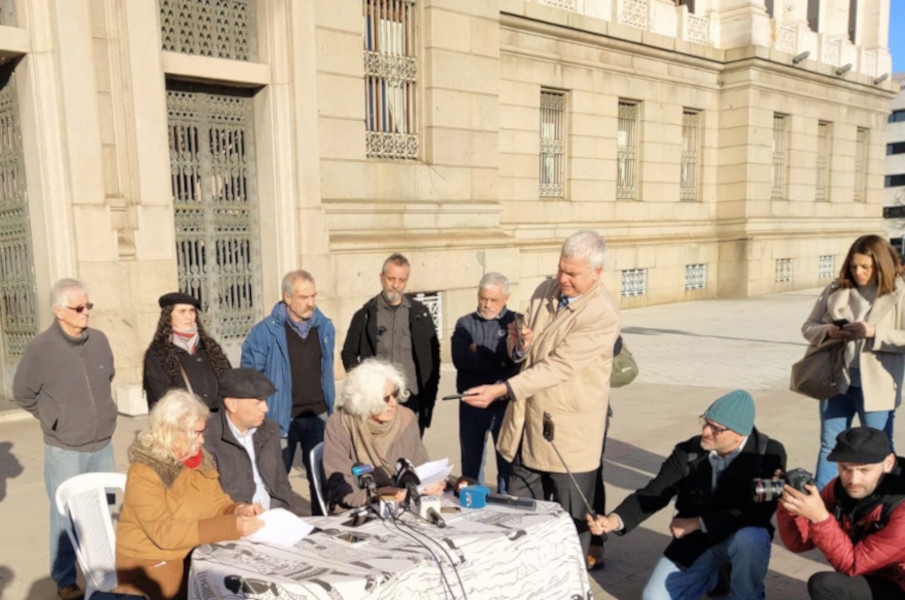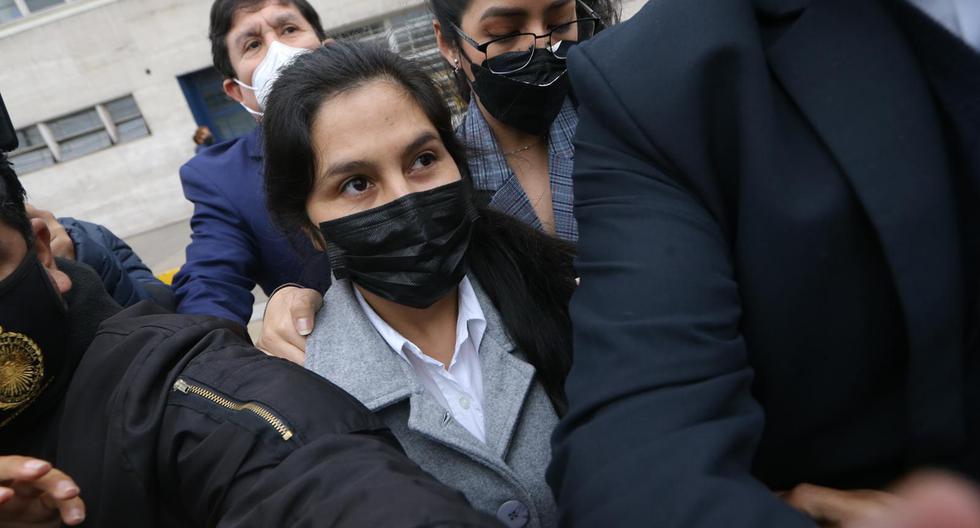The nullity action was accepted by the TCA and notified to the Legislative Branch, which has 30 days to answer why it understands that there are no reasons to declare null the administrative act that the social organizations presented. The Contentious-Administrative Court (TCA) is the highest jurisdictional body in administrative matters, as is the Supreme Court of Justice in other matters.
The social organizations await a sentence that declares the administrative act of the special commission null and void, and if that is the result, the election of the new Board of Directors itself would also be null. The request for annulment is based, as it arises from the action brought, by virtue of the fact that the contested administrative act violates the principles of autonomy and independence required by law, by enabling the nomination of candidates from the political system, when it should only accept the nomination of candidates proposed from the organized civil society recognized by the INDDHH. The experience and training in Human Rights among those who make up said list was not valued either.
Beyond social organizations, the legitimacy of the formation of the Board of Directors of the INDDHH is an issue that matters and affects society as a whole, as it refers to the democratic quality of the country and the effective protection of Human Rights
In a cloak of doubts, slowly, a directive is put into operation that can be declared null
The new directory of the INDDHH, voted is the following:
– Marcos Israel (121 votes), Israelite Central Committee, P. Nacional
– Gimena Fernández Bonelli (120 votes) P. Colorado
– Carmen Rodríguez Nuñez (120 votes), National P
– Bernardo Legnani (68 votes), Open Council
– Wilder Tayler (66 votes), re-elected to the INDHH Board of Directors
“This whole process, poorly managed by the Legislative Power, still has the possibility of being amended, but that depends on the ruling of the TCA and the Legislative Power itself, who can solve it before and contribute to the INDDHH not being in this position of shadows ” expresses Antonio Rammauro, legal adviser to APU (Uruguayan Press Association) and member of the network of social organizations that promote an election in the INDDHH according to what the law orders.
Rammauro explains that “The law creating the INDDHH establishes step by step the way to elect the members of its Board of Directors every five years.
The first step, in each election opportunity, is the creation of a special parliamentary commission with members from all the parties represented in both chambers.
The second step is the reception by that special commission of the candidacies. Who can nominate candidates are social organizations registered with the INDDHH. This is not discussed. There are those who, due to poor drafting of the law, understand that legislators can also propose. This interpretation goes against the independence and autonomy of the institution and the very essence of human rights institutions and ombudsmen in the world, in accordance with the Paris principles, which are the common framework for all of them.
The third step is the study by this special commission of the proposed candidacies to eliminate those who do not meet the requirements of the law. There are objective requirements such as being a citizen and “not having held elective public office or of particular political trust” in the previous two years. Other requirements are more subjective and therefore require an assessment by the commission. among others, the law orders that the candidates must “Be people of high moral authority” and must “Have experience and notorious knowledge of human rights”.
The fourth step is that the special commission prepares a report for the general assembly and the list of candidates who met the requirements required by law. The General Assembly is in charge of resolving, based on these names, the integration of the INDDHH Board of Directors.
The special commission admitted the nomination of names by legislators and legislators and did not control any of the admissibility requirements such as those referring to high moral authority, experience and knowledge in human rights. He passed all the names to the general assembly departing from the law.
This decision of the special commission is an administrative act. An illegal administrative act. For illegal admits to be challenged. And a group of social organizations linked to human rights decided to contest. The legal challenge mechanism was the nullity action before the TCA. As the name of the action says, what is promoted is that the Court declare null the act by which the special commission sent to the General Assembly a list of candidates that includes nominations made by legislators and without having eliminated those people who do not meet the requirements.
If the act is declared null it is like declaring it non-existent. So everything that happened after that is too. In other words, the choice made is invalid. And it all has to go back to the commission to do what it had to do. Respect the law.
This annulment action is a lawsuit against the Legislative Power for an administrative act of a special commission of that State power. It is difficult to estimate how long it may take for the TCA to resolve. There are minimum legal terms and others that depend on other factors.
The truth is that while this is going on, the five elected directors are “under a blanket of doubt” of having been poorly chosen. And that’s not good for democracy. Every resolution that the INDDHH takes will remain in that cloak of doubt, of legitimacy
The social organizations wanted to avoid reaching this point. They alerted and denounced the situation. They worked so that the special commission corrected its steps and adjusted to the law. But the parliament did not listen or listened and did not care. Went ahead. Today we are in this situation because the political system took us there. And because there are organizations that watch over people’s rights and are not immobilized or aligned with the decisions of political parties. The autonomy of the organizations operates once again as a guarantee and defense of the general interest and in particular of the most vulnerable, who many times can only find listening and response in the INDDHH when the State does not respect their rights.”
It has been a week since the appeal was filed and public opinion cannot let the issue pass, a crucial issue in the defense of democracy and Human Rights, either because this procedure does not leave the Institution in a good standing at the national or international level, It is because the rights that are sought to guarantee and defend day by day in the Institution, are (until the sentence is not such) in a limbo where they should never be. (I encourage you to suggest not being categorical on this,” explains Rammauro.
Social organizations publish a statement in which they state:
“The national coordination of organizations that we formed in defense of the INDDHH, warned of the risk posed by ignorance of the nature and principles of the institution; then, we pointed out the lack of transparency in the process and denounced the illegalities committed by the Special Parliamentary Commission by accepting, on the one hand, applications from parliamentarians and, on the other, not questioning the existence of candidates on the list of applicants who did not meet the requirements demanded by current regulations.
At the time, none of this was considered by legislators, who, by not knowing the role of social organizations and their position in this regard, ended up carrying out a damaging and damaging act that led to the presentation, before the Court of the Administrative Litigation, of an action for annulment of the act adopted by the Special Commission on July 25. We understand that the institutional affectation brought about by the disregard of the law in the selection process of the new Board of Directors produces profound damage to the country and its democratic quality, greater damage than the suspension of the administrative act that preceded the assembly last Thursday. .” Attached is the statement in its entirety.
The appointment and performance in the position of members of the board of directors of the INDDHH who, eventually (in the event of annulment being decreed) may fall, notoriously affects the credibility and prestige of the institution, extremes of fundamental importance for the ombudsman. There are more than seventy social organizations that adhere to the nullity action of the process of electing candidates to the CD of the INDDHH on August 11 and more than one hundred that accompany all this monitoring process for an election according to the law.
Meanwhile, Human Rights are still waiting.







